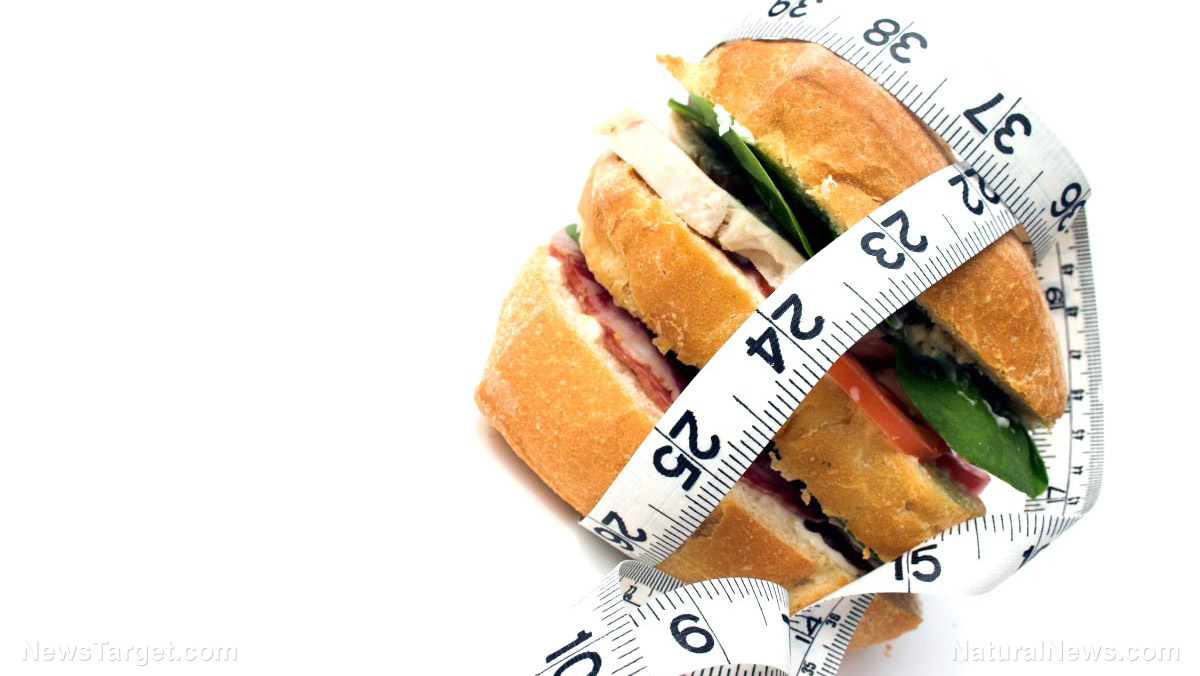Does dieting always mean eating healthier? Study finds gaps in nutrients in several weight loss diet plans
06/06/2018 / By Michelle Simmons

A study published in the journal Nutrients found gaps in nutritional content of several weight loss diet plans. The study, conducted by a team of researchers from Cornell University and Nature’s Bounty Co., evaluated three top-reviewed weight loss diet books on Amazon.com. The chosen plans in the diet analysis were Eat to Live-Vegan, Aggressive Weight Loss; Fast Metabolism Diet; and Eat, Drink and Be Healthy.
The first two titles were chosen to represent two genres of commercial weight loss diets, hypocaloric vegan, and high-animal-protein low-carbohydrate diets. The third diet plan, meanwhile, represented weight maintenance diets.
Researchers then examined seven single-day menus of every diet to represent a week of menus on each diet regimen. They manually entered the sample menus into the online nutrient tracker Cron-O-Meter, a web-based nutrition and biometric tracking application that features data on more than 60 nutrients and contains over 7,500 foods in its database. They compared the micronutrient sufficiency based on U.S. Dietary Reference Intakes (DRIs) for male adults.
Results revealed that the Eat to Live-Vegan, Aggressive Weight Loss plan did not meet 90 percent of recommended amounts of vitamins B12, B3, D, E, calcium, selenium, and zinc. The Fast Metabolism Diet plan provided low amounts of vitamins B1, D, E, calcium, magnesium, and potassium, while the Eat, Drink and Be Healthy provided DRIs for all except for vitamin D, calcium, and potassium.
The researchers concluded that the three diets at a daily energy intake of 2,000 kilocalories (kcal) did not provide the sufficient or recommended intakes of at least two micronutrients – vitamin D and calcium or B12. In addition, they found that vitamin D was less than 30 percent of the DRI of 600 IU per day. (Related: Is There A Safe Weight Loss Detox Diet?)
“Most evidence over the years has shown that people have difficulty adhering to diets permanently. That is, most people stop diets and gain the weight back,” said Tom Brenna, co-author of the study. “As to whether nutrient deficiencies may be an issue, we should consider that commercial diets intend to limit caloric intake over an extended period. Insofar as adopters adhere to the diet, they may be vulnerable.”
Follow these five grocery swaps instead of adhering to a new diet plan
Following a new diet plan can be expensive. Moreover, diet plans may not provide sufficient nutritional value. To avoid these, follow these five grocery swaps.
- Replace half or all the ground meat in a recipe for beans or lentils – By doing this, you can increase fiber, B-vitamins, protein, minerals, and antioxidant polyphenols content of your menu. Although lean ground meat is a good source of protein and iron, beans and legumes are great nutrient sources. They are also economical, versatile, and filling.
- Add fruit to your plain yogurt instead of pre-mixed yogurt – Replace the sugary or artificially sweetened yogurt with plain yogurt. Add frozen or fresh fruit to your plain yogurt to enhance its flavor and add vitamins and fiber to your diet.
- Choose dark leafy greens instead of iceberg lettuce – Dark leafy green vegetables, such as spinach, kale, and arugula, contain more vitamin A, calcium, folate, and vitamin C than lettuce. Moreover, they are also low in calories and high in fiber.
- Add tuna, salmon, eggs, or chicken in place of luncheon meats in a sandwich – Heavily processed foods like luncheon meats are high in sodium and may contain saturated fat. Replacing luncheon meats with a meat alternative will be lower in sodium and saturated fat, provide improved quality of protein, and are much less processed.
- Make your own salad dressings – Make your own salad dressing is a healthier option than heavily processed store-bought dressings, which can be packed with sodium, saturated fat, and have low nutritional content. By making your own, you can control what goes in it.
Read more news stories and studies on diet plans for weight loss by going to Slender.news.
Sources include:
Tagged Under: calcium, diet, diet plans, nutrients, nutrition, nutritional content, nutritional value, research, vitamin B12, vitamin D, weight loss




















